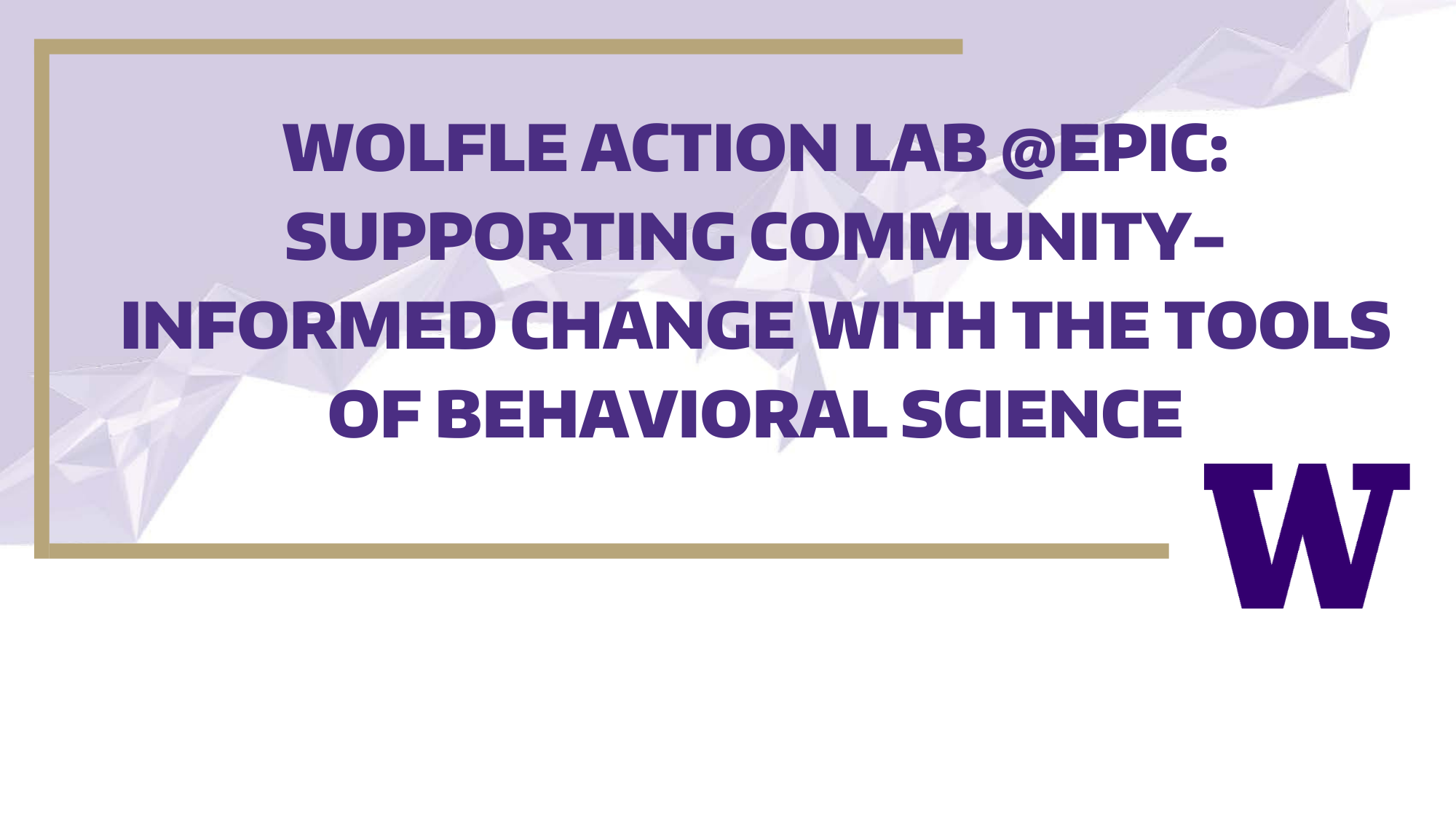As governments continue to lean into commitments to equity and anti-racism, they grapple with the challenges of how to actionably update their policies and processes to better collaborate with and serve their constituent communities. At the local level, community-led approaches to change have the potential to be particularly effective but can be challenging to implement in an authentic and effective way. In the Pacific Northwest, there have been many efforts to engage in this type of work by incorporating approaches informed by behavioral science, which attempt to center how people experience and engage with government policies. However, there is still a lack of extensive evidence-based best practices in this space that take an equity-forward approach to the work. Due to this, conversations that center equity and anti-racism often occur separately from conversations that center person-informed design and behavioral science approaches to pressing local issues.
What can local governments do to better support community-informed change with an emphasis on anti-racism and equity?
Our convening will bring together leaders in both the academic and practitioner communities to explore questions of how to provide guidance and evidence-based best practices for those working at the local level on these issues. Through the unique combination of stakeholders engaged, we will leverage the current state of the scholarly literature, while also being mindful of the practical constraints and challenges faced by actors within this level of government.
Details:
Location
El Centro de la Raza
Centilia Cultural Center
1660 S Roberto Maestas Festival St, Seattle, WA 98144
Date
Friday, April 5, 2024
9am – 5pm
Breakfast and lunch provided.
Questions?
Email evansepic@uw.edu.
Hosting & Facilitation Team:
Crystal Hall is an Associate Professor at the Evans School. Her research pursues the integration of psychology into the design and implementation of social policy. She has collaborated with government agencies at the local, state, and federal level—including having served on the Federal Office of Evaluation Sciences and the White House Social and Behavioral Sciences Team.
Ines Jurcevic is an Assistant Professor at the Evans School. Her work aims to understand how people and organizations think about diversity, equity and inclusion and how this translates into efforts to promote or undermine various initiatives and interventions. Further, she examines how people’s individual attitudes, identities and group memberships inform these processes and influence performance and interpersonal outcomes in these contexts.
AK Sterling is an EPIC Innovation and Engagement Manager. He has experience working in communications, community engagement and project management in higher education, focusing on building deep relationships with stakeholders, students, and community members to advance access to higher education and close opportunity gaps.
Cali Jahn is an EPIC Innovation and Engagement Manager. She has 6+ years of experience working in project management and communications primarily for Georgia advocacy and policy-based nonprofits, along with several state agencies. She has conducted general data analysis and research in a variety of policy areas as well as led the strategy and implementation of multiple marketing campaigns.
Jessika Gill is the EPIC Designer. She has a background in landscape architecture with a focus on design activism in relation to social issues. She has experience in management of design-build projects including community-led design for public spaces.

